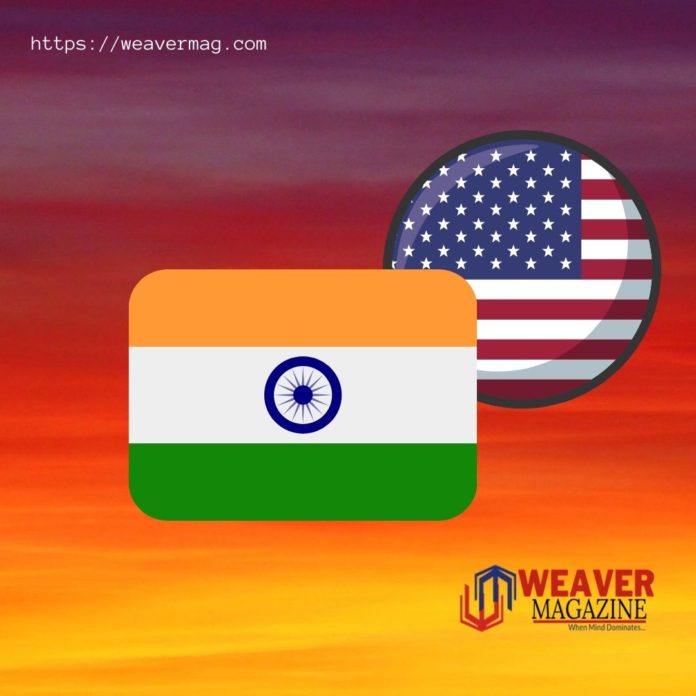“India and US are natural friends and allies”
– Barack Obama (former US President)
The present scenario has shown a new, stronger and more promising friendship develop between India and the USA. But, the biggest question and one of the most prudent ones, which remains is – Has this development taken place in adherence to the basic principles of India’s foreign policy? And also is this development good for India? If so or no, then how and why? And before answering these questions a basic understanding of India’s foreign policy principles in necessarily required.
THE BASIC TENETS OF INDIA’S FOREIGN POLICY:
The fundamental features of India’s foreign policy are:-
- Panchsheel – This agreement was initially signed between Prime Minister Jawaharlal Nehru of India and Chinese Premier Zhou–en–Lai in 1954. Panchsheel basically refers to the five principles of peaceful coexistence which includes –
- Mutual non – aggression.
- Equality and mutual benefit.
- Peaceful coexistence.
It acts as a beacon light for India’s foreign policy relations. Though, initially it had been aimed to develop cooperation both economic and political between India and China, these principles later go on to form the basis of the Non – aligned Movement.
- Non – aligned Movement (NAM) – The NAM was initiated in 1961 by Prime Minister Jawaharlal Nehru of India, General Abdel Nasser of Egypt, President Sukarno of Indonesia and President Josip Tito of erstwhile Yugoslavia. The emergence of the NAM was a direct result of the Cold War between the USA and the USSR, from which the newly independent states wanted to stay aloof. Hence, initially it was a big success, with steadily growing member states. But after the end of the Cold War in 1991, the NAM slowly went on losing its significance, especially that of its name “non – aligned”. But the leaders directed this movement from a politically neutral one to an economically active one, with also adequate emphasis on anti – terrorism measures and deliberations on environment protection. Of the 193 United Nations members 119 are NAM members. Hence, the validity of NAM in the present scenario can be well – judged. NAM also has a role to check the over – domination of the USA in the United Nations.
These are the two predominant features or principles of India’s Foreign Policy, but there are a few others are well of which the “Nuclear Doctrine” is worth mentioning. It ensures that India would never use nuclear weapons against any nation in the first hand and also in case of use there would be credible minimum deterrence.
India also has a policy of keeping away from any military alliances, as a result of which she did not become a part of the South – East Asian Treaty Organization (SEATO), much to the discontentment of the USA. India also does not provide any military base to a country as a tribute to her foreign policy.
DISREGARD OF THE BASIC FOREIGN POLICY PRINCIPLES AND THE PROBABLE PROBLEMS ARISING OUT OF THE MISTAKES MADE BY INDIA
The accusations of the Opposition against the BJP government in India, centers around the fact that in the recent “Howdy Modi” event in September 2019, Indian Prime Minister, Narendra Modi had actually been “campaigning” for US President Donald Trump’s upcoming election, thus violating her foreign policy principle of non – interference in the elections of another country. But even if we do not get into the question of legitimacy of the claims, something definitely does not escape our attention and that is the increasing close ties between India and the USA. Like, every political, economical and strategic step, even this measure, rather policy, has its own pros and cons. The USA can beyond doubts act as an able ally of India in helping to raise her economy. Also, military drills between the different branches of the armies of these two nations can help in cooperative development of the efficiency of them, especially for India.
The answer tends to be yes. To be honest, the foreign policy of India has never been that “non – aligned”. India, in her early years of independence has been a silent supporter of the erstwhile USSR, which of course was a result of US dislike for India because of her refusal to join the SEATO, to remain non – aligned. An example would be suitable to explain this. India had openly condemned US interventions in Afghanistan but for USSR, she simply advised them to withdraw troops from there.
India has always had a socialistic tendency, thinking for the welfare of her people. But the USA has been a capitalist nation for a long time now. On the other hand the USSR, had a more socialistic approach compared to the USA. But anyway, after 1991, end of the Cold War and the subsequent breaking of the USSR and the emergence of a temporarily weakened Russia after that, forced India to seek better economic and military ties with the USA, though relations with Russia continued to flourish. But now, the scenario has been a little different. India seems to have been too intimately involving herself with the USA. Our ties with Russia need to be embellished before it gets rusted. It might seem that closer relations with the USA provide us with a more reliable European Community, but that’s not true! Not completely at least. India has cordial ties with several European countries for instance France and also nations in the Pacific like Japan and Australia, who are prominent American allies. India can definitely focus more on bilateral relations especially in the regional sphere, to help her maintain her non – aligned stance.
Another point to be noted is that anything the USA does would not be solely for Indian benefits but also for subsequent American benefits and that’s understandable. A good foreign policy is fuelled by interests. But India’s ties with Russia have been perennial. Also, Russia is by far less demanding than the USA, in terms of commitment. If we focus on the US help and support for India against China’s aggression, then we can notice that helping India is definitely not the sole purpose for American interventions; not even the predominant purpose. The main reason seems to be the American fear of an economically invincible China as well as checking China’s growing ambitions in the South China Sea region as well as the Indian Ocean Region (IOR). We must not forget that the USA will not voluntarily involve herself in any scramble, especially when her interests are not directly hampered. On the contrary, Russia has only China as an ardent and powerful supporter for her in the international sphere, but even then she helps out India silently and outwardly maintains a neutral stand in Indo – China conflicts, respecting her ties with “old ally”, India.
Hence, under such circumstances, India should consider the importance of developing her relations with Russia. The recession in the Indo –US relations can be well balanced with stronger bilateral relations with regional powers, especially some Southeastern states, with Japan, Australia, Israel, Saudi Arabia, France, Brazil and other such nations who have the potential to unconditionally help India, or atleast with conditions lesser than that of the USA. Also, there’s a glaring ideological difference between India and the USA. The fact remains that the USA would involve herself in the Indo – China conflict as long as her interests are connected there. With the slightest recession of China, Washington is most likely to dessert New Delhi substantially. India can always seek the cooperation of the USA in any economic or military issues if the USA is willing to help her, after India’s withdrawal from her close vicinity. It is also important for India to more thoroughly examine the US attitude towards other nations whom she had supported initially and later on left to suffer and then make suitable decisions. Relations with the Russian Federation immediately need to be strengthened and not let exist superficially although, New Delhi must not forget the necessity rather importance of the USA at the same time.
********************












nice analysis
You certainly have a mind that is politic and perspicacious….a well timed political commentary that should remind us of our prior commitments and allegiances…